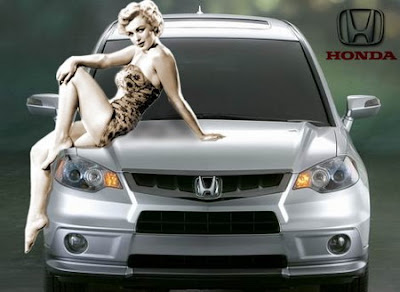 Honda's top finance executive warns that Toyota's growing recall effort could have a ripple effect throughout the industry, as consumer lose faith in the world's automakers, The Wall Street Journal reports.
Honda's top finance executive warns that Toyota's growing recall effort could have a ripple effect throughout the industry, as consumer lose faith in the world's automakers, The Wall Street Journal reports.
Honda Chief Financial Executive Yoichi Hojo tells the paper that "if customers start to harbor doubts about [quality and safety], that would be problem for the whole industry.
Hojo says Honda will be ratchetting up incentive programs in the United States to reduce inventory, but will not target them specifically at Toyota owners.
Honda's refusal to go after disaffected customers from its main rival offers a unique opportunity for other automakers, like General Motors and Ford, to pick up customers with the host of deals they are offering to current Toyota owners, including rebates of up to $1,000.
By contrast, Honda has said it will continue offering "orthodox" measures such as leasing services and the usual discounts to any kind of customers, not limited to Toyota owners. Toyota's troubles "won't necessarily be a positive," said Mr. Hojo.
Worse, Toyota's quality issues could cast a shadow over other auto makers. "I think we should see this Toyota problem from a broader viewpoint," he said. "If customers start to harbor doubts about [quality and safety], that would be problem for the whole industry."
Mr. Hojo's comments illustrate the difficulties that Toyota's quality woes present to the rest of the industry. The world's No. 1 auto maker by sales volume is a fierce competitor with a strong presence in fuel-efficient vehicles such as its gasoline-electric Prius hybrid. The company has recalled 8.1 million vehicles for sudden-acceleration problems and will likely start a separate effort this week in Japan to fix braking problems on some Prius models, weakening its competitive edge.
At the same time, Toyota's troubles have raised sensitive industrywide issues, including the role of U.S. safety regulators such as the National Highway Traffic Safety Administration in probing Japanese-made cars after Washington-led bailouts of their U.S. rivals. Mr. Hojo played down those tensions. "I don't think that NHTSA is anti-Japanese," he said.
Mr. Hojo said that Honda, Japan's No. 2 auto maker, is set to increase incentives to car buyers in the U.S. to $1,400 per vehicle in the quarter ending March 31, up from $800 provided in the previous quarter.
"Competition remains tough. We have relatively low inventory levels. But for the Accord and the Civic, their inventory days came to around 70 days in January [compared with the company's average of 60 days]. So we'll spend incentives for these," he said.
Among the major car makers in the U.S., Honda offered the lowest incentive average of $1,281 last year, according to data by Edmunds.com.
Mr. Hojo said that industrywide U.S. auto sales grew to 11.2 million in December on a seasonally adjusted annualized selling rate basis, the second-best month of 2009 after August, which received a major boost from the "cash for clunkers" U.S. government-rebate program.
But he said the growth was driven mainly by fleet sales to rental and commercial operators, which are generally less profitable than retail sales to individual customers. "Demand from individuals hasn't yet recovered yet," he said.
Mr. Hojo said a full recovery in the U.S. market was necessary for its earnings to return to pre-financial crisis levels. "We sold 1.15 million vehicles in 2009 and plans to sell 1.23 million in 2010. But these numbers are 300,000 to 400,000 fewer than the past volume," he said. He added, "we don't see yet" a sign of when it will return to the past healthy volume of around 1.60 million vehicles, he added.
The car maker, which also makes jets, lawnmowers and water pumps, expects net profit to soar 93% to 265 billion yen ($2.96 billion) in this fiscal year, which ends March 31.
Mr. Hojo said that in India, sales of Honda's motorcycles "are growing explosively" with a 30% sale increase in the three months ended in December. The overall market will likely increase 35% to nine million motorcycles sold annually, he said.
Honda is also set to launch a newly developed low-cost car with a price of below 500,000 rupees (about $10,720) in 2011 to tap the booming market. Honda's auto sales in India jumped 43% from a year earlier in the October-December quarter to 15,800 vehicles. "The market will grow further," said Mr. Hojo.
Source;





.jpg)




 7:11 AM
7:11 AM
 rin
rin














0 comments:
Post a Comment